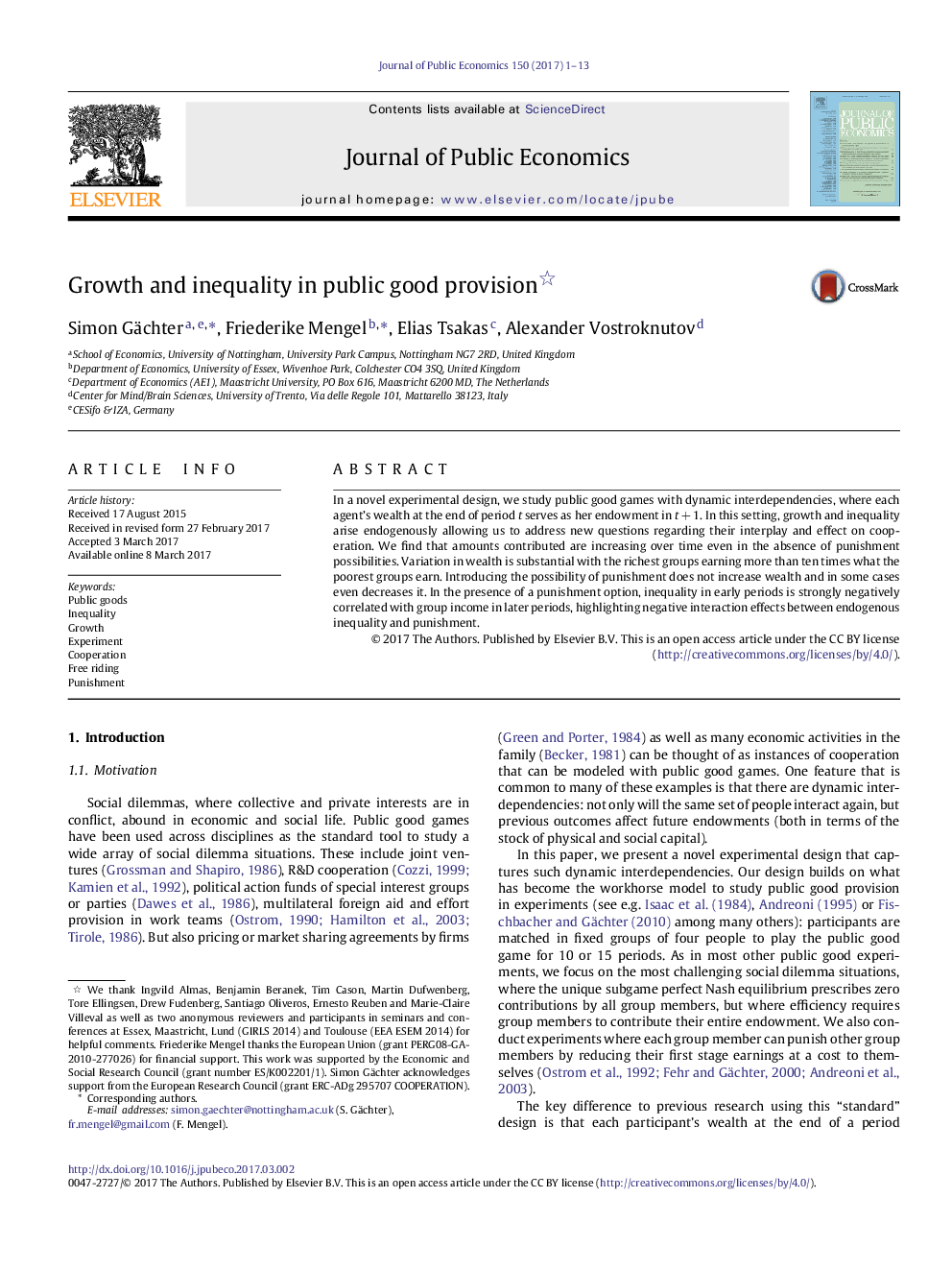| Article ID | Journal | Published Year | Pages | File Type |
|---|---|---|---|---|
| 5101791 | Journal of Public Economics | 2017 | 13 Pages |
â¢We study a public goods experiment with dynamic interdependency.â¢Period endowments are the incomes of the previous period.â¢Absolute contributions increase over time.â¢The richest groups earn ten times more than the poorest groups.â¢Early punishment is negatively related with later group income.
In a novel experimental design, we study public good games with dynamic interdependencies, where each agent's wealth at the end of period t serves as her endowment in t + 1. In this setting, growth and inequality arise endogenously allowing us to address new questions regarding their interplay and effect on cooperation. We find that amounts contributed are increasing over time even in the absence of punishment possibilities. Variation in wealth is substantial with the richest groups earning more than ten times what the poorest groups earn. Introducing the possibility of punishment does not increase wealth and in some cases even decreases it. In the presence of a punishment option, inequality in early periods is strongly negatively correlated with group income in later periods, highlighting negative interaction effects between endogenous inequality and punishment.
